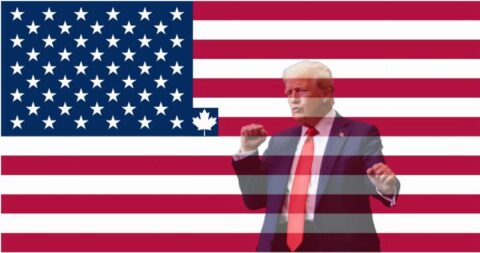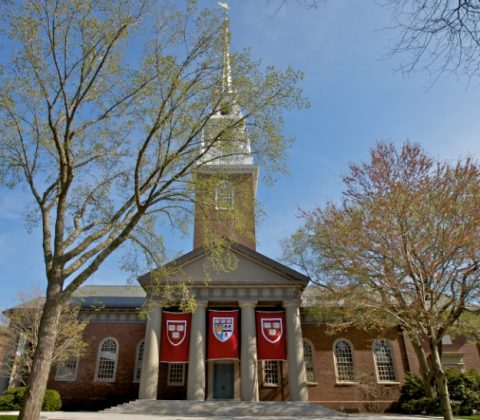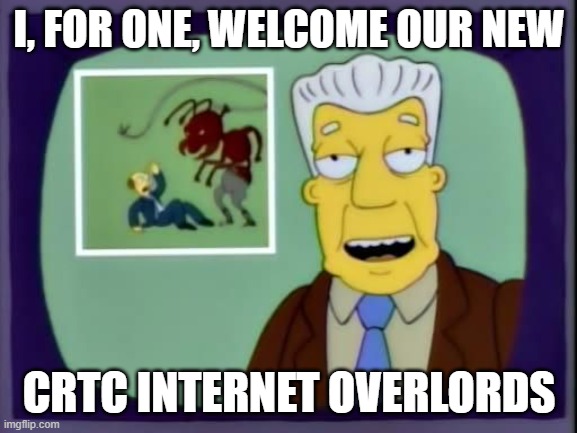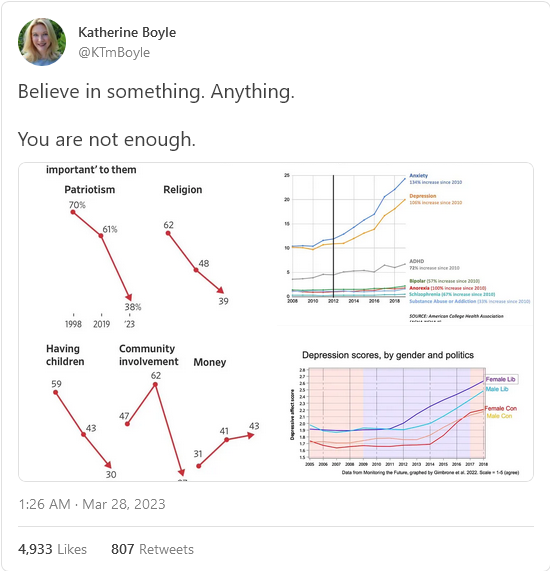In the National Post, Bryan Schwartz suggests that some of the things Trump has raised as issues in Canada/US trade would be economically sensible for Canada to address because they’d reduce costs of doing business in Canada which would be good for all Canadians (except the crony capitalists in the blatantly protectionist “supply management” cartels):

US President-elect Donald Trump trolling about Canada becoming the 51st state of the union does seem to have directed attention to our bilateral trade situation wonderfully.
The threatened Trump tariffs would hurt both the United States and Canada in many ways. But the U.S., with a larger and more productive economy (on a per capita basis), is better able to sustain the immediate pain. The economic pressure on Canada is, therefore, serious and credible.
Canada should first address issues that are of particular importance to the Trump administration. The incoming president tends to emphasize national security, even over economic nationalism. The authority of the president, under the inherent powers of the office and congressional statutes, is greater if the issue relates to national security.
The same holds under international trade agreements. The president can raise issues that Canada can address in a prompt and reasonable manner. These include border security and increasing Canada’s commitment to contributing its fair share to international alliances, which would include increasing military expenditures.
Second, Canada should recognize that external pressures can provide opportunities to do things that are in this country’s own interests, but are otherwise politically difficult. Outside pressures have in the past encouraged Canada to adopt several measures that are good for the country, such as reducing pork-barreling and regional favouritism in government contracting.
Canada’s dairy protectionism provides a good example of a trade concession that would benefit Canada, as it is unfair to lower-income Canadians and, in the long run, hurts the industry itself. An industry more exposed to competitive pressures would be incentivized to be more productive and seek to expand into international markets.
Australia has shown how such marketing boards can be abolished in a manner that gives some time to the industry to adjust and ultimately benefits all concerned. Canada could similarly rid itself of its outdated and counterproductive Freshwater Fish Marketing Corporation, as well. To the extent that the United States pressures us to eliminate such supply management systems, it is actually doing us a favour.
Likewise, given that the U.S. is moving away from suppressing free expression in cyberspace, Canada would benefit from joining such initiatives rather than continuing down the path of having government or big companies effectively engage in censorship under the guise of fighting “disinformation”. The best remedy for any wrongheaded speech is rightheaded speech, not censorship.
At Dominion Review, Brian Graff steals a line from George C. Scott’s portrayal of Patton who said (in the film, not in real life) – “Rommel, you magnificent bastard. I read your book!” after reading the book of Trump’s Trade Representative, Robert Lighthizer:

Lighthizer wrote a book (released in June 2023) about his trade views and experience entitled No Trade Is Free: Changing Course, Taking on China, and Helping America’s Workers, which I just read. I only became aware of Lighthizer in November, in part because of a review of his book in The Guardian.
I don’t think Lighthizer is a bastard (literally or figuratively). He is hardly magnificent, but his book should be required reading for Canadians interested in our upcoming negotiations with the US. Our government would learn how best to counter the US by preparing a strong strategy and going on offence even before negotiations begin.
In short, we should not give away anything for free. This is Lighthizer’s position in matters of trade. For example, Canada should not volunteer to meet the two percent defense spending target ahead of negotiations. If anything, Canada should be accusing the US of whatever complaints we can muster. Trump might complain about the Canadian border being porous when it comes to people and drugs, but we can make the same claims, and add on the fact that the US should do more to stop the flow of illegal guns into Canada across our southern border.
Lighthizer provides a history of the US based around the idea that the US revolution and the constitution were a reaction to the mercantilist policies of Britain, which wanted to export manufactured goods and import only raw materials, while also limiting US trade with the rest of the world. Here is Lighthizer’s essential view:
Today, the tide has turned against the argument for unfettered free trade, in no small part because of the changes we made in the Trump administration. More broadly, evidence and experience have shown us that free trade is a unicorn – a figment of the Anglo-American imagination. No one really believes in it outside of countries in the Anglo-American world, and no one practices it. After the lessons of the past couple decades or so, few believe in it even within that world, save for some hard-core ideologues. It is a theory that never worked anywhere.
This is his critique of the neoliberal free trade approach:
According to the definitions preferred by these efficiency-minded free traders, the downside of trade for American producers is not evidence against their approach but rather is an unfortunate but necessary side effect. That’s because free trade is always taken as a given, not as an approach to be questioned. Rather than envisioning the type of society desired and then, in light of that conception of the common good, fashioning a trade policy to fit that vision, economists tend to do the opposite: they start from the proposition that free trade should reign and then argue that society should adapt. Most acknowledge that lowering trade barriers causes economic disruption, but very few suggest that the rules of trade should be calibrated to help society better manage those effects. On the right, libertarians deny that these bad effects are a problem, because the benefits of cheap consumer goods for the masses supposedly outweigh the costs, and factory workers, in their view, can be retrained to write computer programs. On the left, progressives promote trade adjustment assistance and other wealth-transfer schemes as a means of smoothing globalization’s rough edges.
This section is also key:
… mercantilism and a free market are dramatically different systems, with distinctions that are important to note. Mercantilism is a school of nationalistic political economy that emphasizes the role of government intervention, trade barriers, and export promotion in building a wealthy, powerful state. The term was popularized by Adam Smith, who described the policies of western European colonial powers as a “mercantile system.” Then and now, there are a vast array of tools available for countries seeking to go down this path. Mercantilist governments, for instance, frequently employ import substitution policies that support exports and discourage imports in order to accumulate wealth. They employ tariffs, too, of course, and they limit market access, employ licensing schemes, and use government procurement, subsidies, SOEs, and manipulation of regulation to favor domestic industries over foreign ones.
The focus of the book, and the main villain, is China, followed closely by the World Trade Organization (WTO). Canada gets less than 77 mentions, Mexico gets 99 mentions in the first 352 pages of 576 (the e-book stops counting at 99), and Japan gets 99 mentions in the first 400 pages. Compare this to China, which gets 99 mentions within the first 101 pages alone.















